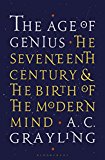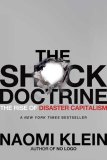Summary | Excerpt | Reviews | Beyond the book | Read-Alikes | Genres & Themes | Author Bio

Britain, America, and the Making of the Modern World
by Walter R. MeadWalter Russell Mead starts his
serious book with a joke, and it's a funny one, not
to mention smart, which bodes well for the book
itself, as it shows Mead taking us into his
confidence: a writer telling witty tales that assume
intelligence in his readers.
God and Gold is engaging in the extreme, which
you can't say of most books spanning more than 350
years of history with an emphasis on religion,
politics and money. This is a weighty book with both
historical and contemporary import, starting with
Oliver Cromwell and ending with George W. Bush.
In Part I Mead makes his case for the dominance of
England and America since both became nations,
indeed empires, in their own unique and intimately
connected ways. He engages the reader with a
technique journalists call the 'Wall Street
Journal lead,' beginning each chapter with the
story of a person which illustrates the theme of the
chapter.
Having established a thread that connects Cromwell
and Ronald Reagan in Part I, part II is a linked
conversation through time delineating events that
show Britain and the U.S. achieving the dominance
Mead claims. Each chapter begins with an anecdote to
capture our interest as Mead humorously expounds on
what, in lesser hands, could be a dreary
litany-compendium of financial and ecclesiastical
data.
Part III is about the resources, personal, financial
and religious, that the two nations used to
dominate, which leads into Part IV which explores
how, time after time in the aftermath of every
triumph, these two nation-friends have confidently
announced that "things have been taken care of" –
and how they have consistently been proven
spectacularly wrong. In conclusion, Mead rounds
everything up with a look at what all this means for
today and for the future.
Throughout, Mead demonstrates a love of paradox,
demonstrating the union of cynicism with faith and
pragmatic common sense with religious devotion, in
the political and economic behavior of both Britain
and the USA. As Mead puts, "To Pepsi from Pepys" —
"countervailing forces and values must contend."
Mead shows that these forces, while huge, are also
human. Just as an Anglo-American historical
juggernaut never quite conquers as much as it thinks
it has, we must beware the danger of making too much
of it all. This history is not an inexorable result
of nations but of men. The connections exist because
there is, truly, nothing new under the sun.
But we keep living it out in every generation, and
it all seems so very new to us. This book — about
history, but not a history book — reminds us,
engagingly, that actions matter.
God and gold … religion and money … four centuries
of politics and statecraft: polite company excludes
talk of such things, but you can take this book's
ideas to a dinner party without fear. You can even
start with Mead's opening joke:
"In Colonial Virginia a
wealthy and well-connected planter's son once asked
his Anglican rector if it was possible to find
salvation outside the Church of England. The rector
struggled with his conscience; he could hardly claim
that only Anglicans get to Heaven — but he didn't
want to encourage this well-born young parishioner
to associate with the dissenting riffraff and
wandering evangelists of the region. After a few
minutes of thought he was able to give the young man
an answer. "Sir," said the divine, "the possibility
about which you enquire exists. But no gentleman
would avail himself of it."
Many Americans feel a little bit like that rector
when confronted with discussions of American power.
We know it's there and we know it's important — but
the subject makes us uncomfortable. No gentleman —
or, for that matter, no lady — would bring it up."
![]() This review was originally published in The BookBrowse Review in November 2007, and has been updated for the
October 2008 edition.
Click here to go to this issue.
This review was originally published in The BookBrowse Review in November 2007, and has been updated for the
October 2008 edition.
Click here to go to this issue.

If you liked God and Gold, try these:

by A.C. Grayling
Published 2017
Out of a 'fractured and fractious time,' the author asserts persuasively, the medieval mind evolved into the modern. Another thought-provoking winner from Grayling." - Kirkus

by Naomi Klein
Published 2008
The bestselling author of No Logo exposes the rise of "disaster capitalism" and destroys the myth of the global "free market".
Your guide toexceptional books
BookBrowse seeks out and recommends the best in contemporary fiction and nonfiction—books that not only engage and entertain but also deepen our understanding of ourselves and the world around us.